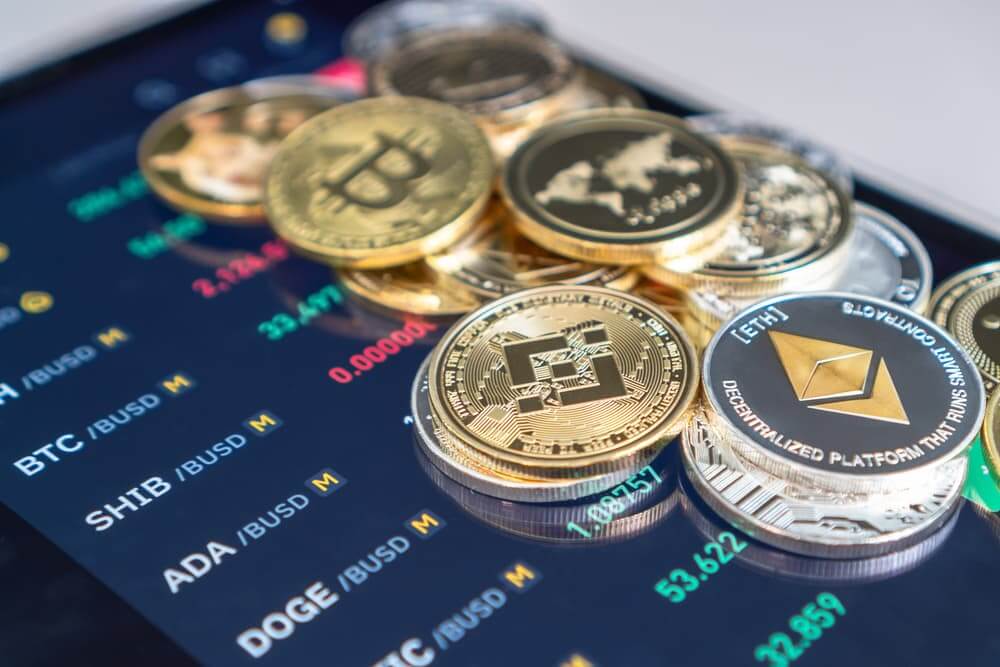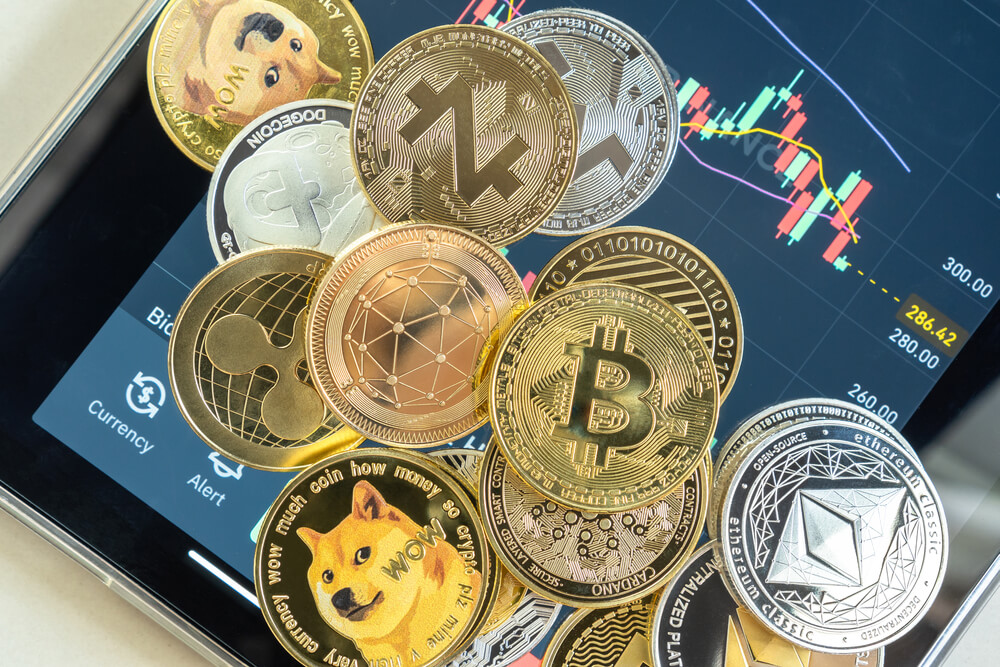
When Should You Sell Crypto?
Selling cryptocurrency is as much an art as a science, with the decision influenced by a complex interplay of market dynamics, personal financial goals, and psychological factors. There are numerous questions like, ‘When should you sell crypto?’ Let’s find out!
This comprehensive guide will explore several key considerations and strategies that can guide you in making an informed decision on when to sell your cryptocurrency investments.
Understanding the market
First of all, it is important to have at least a general understanding of the crypto market, when it comes to questions like, ‘When should you sell crypto?’
From time to time, you might observe a cryptocurrency project and its corresponding token launching with significant enthusiasm and bold claims. The token initially performs well, experiencing a surge in value, only for its price to gradually decline over subsequent weeks or months. This gradual decrease often occurs when the project fails to achieve significant developmental milestones.
To cut a long story short, cryptocurrency projects are in essence, tech development endeavors. If these ventures don’t deliver on their promised products or advancements, investors quickly catch on to the lack of progress.
This is why such projects emphasize transparency and the necessity for frequent updates. A lack of communication can be interpreted as a failure to reach development targets, serving as an indication that it might be prudent to consider selling.
Market trends
Observing market trends is fundamental. Cryptocurrencies can exhibit volatile price movements, and understanding whether the market is in a bullish (rising) or bearish (falling) phase can significantly influence your decision to sell. Technical analysis, which involves studying price charts and trading volumes, can help identify trends and patterns that may indicate a good selling point.
News and events

Stay informed about news and events that could affect the cryptocurrency market. Regulatory changes, technological advancements, security breaches, and macroeconomic factors can all have significant impacts on cryptocurrency prices. Positive news might indicate a good time to hold, as prices might increase, while negative news might suggest a good time to sell before prices fall further.
Personal financial goals
Your personal investment objectives are crucial in deciding when to sell. Are you in it for long-term gains, or are you trading short-term market fluctuations? Long-term investors might wait for their asset to reach a predetermined value aligned with their financial goals, while short-term traders might sell more frequently to capitalize on volatility.
Risk tolerance
Your risk tolerance is another vital consideration. If market volatility is causing you stress, selling a portion of your holdings to secure profits and reduce your exposure might be wise. Conversely, if you have a high risk tolerance, you might decide to hold your position longer, betting on future price increases.
Portfolio diversification
Consider how your cryptocurrency investment fits into your broader portfolio. If a particular asset has grown to dominate your portfolio, selling some of it to rebalance and diversify your holdings might reduce risk and align with your investment strategy.
Psychological factors
Fear of Missing Out (FOMO)

FOMO can lead investors to hold onto assets longer than they should, hoping for even higher returns. It is important to recognize this emotional bias and stick to your investment plan, selling when your goals or market analysis indicate it’s the right time, rather than getting caught up in the hype.
Loss aversion
It is worth noting that many investors hesitate to sell because they want to avoid realizing a loss. Nevertheless, if the market analysis indicates further downward trends, selling might be the best option to prevent more significant losses. It is vital to make rational decisions based on market conditions and not emotional attachments to your investments.
Strategies for selling
Setting targets
One effective strategy is to set price targets for your investments at which you’ll sell a portion or all of your holdings. This can help take the emotion out of selling and ensure you lock in profits or minimize losses.
Dollar-cost averaging (DCA)
Just as DCA can be a strategy for buying into a position by investing a fixed amount regularly regardless of the asset’s price, the same can apply in reverse for selling. Gradually selling off your investment over time can help smooth out volatility and reduce the risk of selling at a low.
Stop loss and take profit orders
Using stop loss and take profit orders can automate your selling strategy based on specific price points. A stop-loss order can limit your losses by automatically selling if the price falls below a certain level. In contrast, a take-profit order can secure your profits by selling once the price reaches a predetermined high.
How to select a cryptocurrency exchange
It is hard not to mention a cryptocurrency exchange when answering questions like, ‘When should you sell crypto?’
Choosing the right cryptocurrency exchange is a pivotal decision for any crypto investor or trader, as it affects the ease of trading, security of assets, and overall trading costs. Here are key factors to consider when selecting a cryptocurrency exchange:

Security
The paramount consideration should be the security measures implemented by the exchange. Look for exchanges that offer two-factor authentication (2FA), cold storage options for a majority of assets, insurance against theft, and a track record of robust security practices.
Liquidity
High liquidity indicates that there are a large number of buyers and sellers, which typically results in tighter spreads between the buy and sell prices. It ensures that trades can be executed quickly and at predictable prices.
Fees
Understand the fee structure of the exchange. Most exchanges charge a combination of trading fees and withdrawal fees. Compare these fees across exchanges as they can significantly affect the cost of trading, especially for high-volume traders.
Regulatory compliance
Opt for exchanges that are compliant with the regulations of the jurisdictions they operate in. Regulatory compliance indicates a level of accountability and offers a layer of protection to users.
User experience
A user-friendly interface is crucial, especially for beginners. The ease of depositing and withdrawing funds, along with a straightforward trading process, can enhance your trading experience.
Coin and token variety
Consider the variety of cryptocurrencies offered. If you are looking to trade or invest in specific coins or tokens, make sure the exchange supports them.
Customer support
Responsive and helpful customer support is essential, especially in resolving issues related to trades or with your account.
By carefully evaluating these aspects, you can choose a cryptocurrency exchange that aligns with your trading needs as well as security requirements, ensuring a smoother and more secure trading experience.
Conclusion
When should you sell crypto? This is a nuanced decision that depends on market conditions, personal financial goals, and psychological factors. By staying informed, setting clear objectives, understanding your risk tolerance, and employing strategic selling strategies, you can make more informed decisions that align with your investment goals.
Remember, no strategy guarantees profits or eliminates risks entirely, so it’s crucial to conduct thorough research and consider seeking advice from financial advisors.




